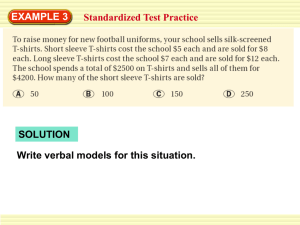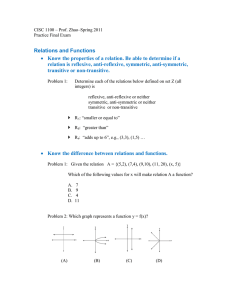7.2 *Solving Systems with Substitution
advertisement
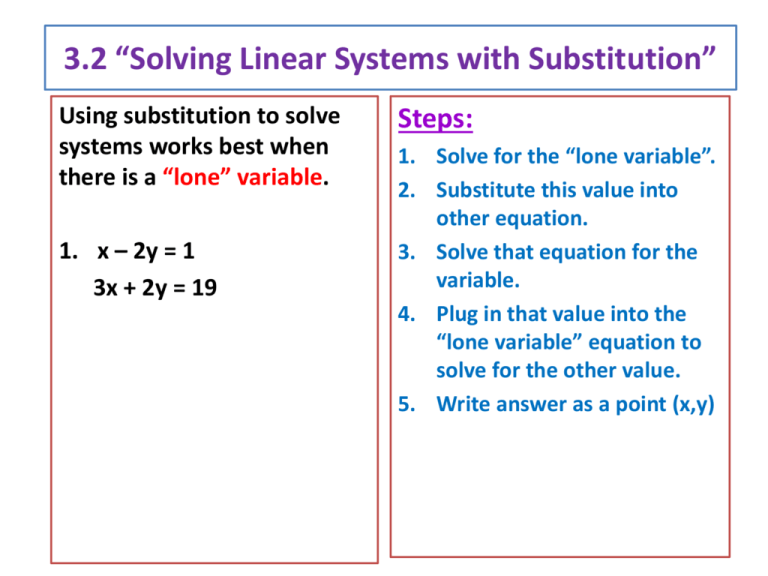
3.2 “Solving Linear Systems with Substitution” Using substitution to solve systems works best when there is a “lone” variable. 1. x – 2y = 1 3x + 2y = 19 Steps: 1. Solve for the “lone variable”. 2. Substitute this value into other equation. 3. Solve that equation for the variable. 4. Plug in that value into the “lone variable” equation to solve for the other value. 5. Write answer as a point (x,y) More Examples: 2. 3x – 2y = 10 4x + y = 6 3. 4x – 2y = 5 2x = y - 1 Try These: 4. 2x + 5y = 41 2x + y = 13 5. 3y – x = -8 5y + 2x = -6 “Solving Systems Using Elimination” The Elimination method is AKA the Addition method. No limitations using this method. 1. 8x + 3y = 23 4x – 5y = 5 Steps: 1. Get a plan on which variable to eliminate. 2. Multiply one equation by a number. 3. Add the two equations and solve for the variable. 4. Plug in that value into one of the original equations and solve for the other variable. 5. Write answer as a point (x,y) More Examples: 2. 3x + 3y = -15 5x – 9y = 3 3. -6x – 5y = 12 3x + 2y = -3 More Examples: 4. 3x - 6y = 9 -4x + 7y = -16 5. 8n = 6m - 3 9m = 12n + 5 More Examples: 6. 3x + 2y = 22 2x – 3y = 6 7. 5x – 7y = 54 2x – 3y = 22 Word Problems 1. To raise money for new football uniforms, LDHS sells T-shirts. The short sleeve shirts costs the school $8 and are sold for $11. The long sleeve shirts costs the school $10 and sell for $16. The school spends a total of $3900 on T-shirts and sells them for a total of $5925. How many short and long sleeve shirts did the school sell?

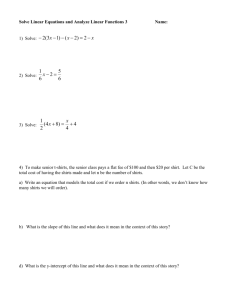
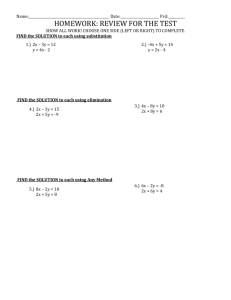
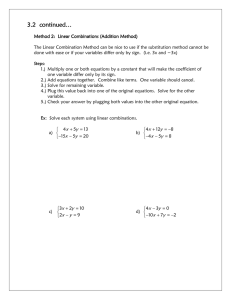
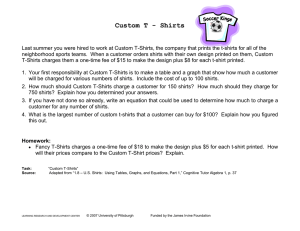
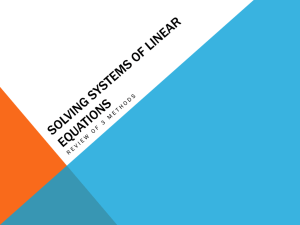
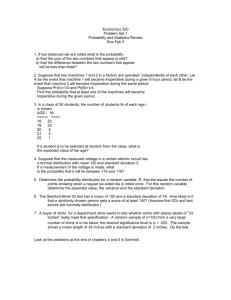

![Masood Textile Mills [Erum Zahoor]](http://s2.studylib.net/store/data/005544654_1-c63f8378e6188468be9b937fd88ad22c-300x300.png)
![Guidance on lone and out-of-hours working [DOCX 33.34KB]](http://s2.studylib.net/store/data/014979692_1-ee78a79daf404e4d826549abbd4d835e-300x300.png)
